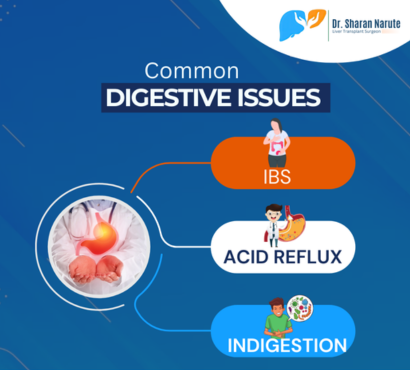Digestive problems are a widespread concern, ranging from mild discomfort to severe pain. Understanding these issues can help you identify potential problems and seek appropriate medical attention. Here are some common digestive complaints and their associated symptoms:
- Heartburn and Acid Reflux:
- Symptoms: A burning sensation in the chest, often worsened after eating or lying down.
- Causes: Excess stomach acid flowing back into the esophagus.
- Irritable Bowel Syndrome (IBS):
- Symptoms: Abdominal pain, bloating, gas, constipation, or diarrhea.
- Causes: A complex condition believed to be related to changes in gut motility and sensitivity.
- Constipation:
- Symptoms: Infrequent bowel movements, hard stools, straining during bowel movements.
- Causes: Dehydration, lack of fiber, certain medications, or underlying medical conditions.
- Diarrhea:
- Symptoms: Frequent, loose stools.
- Causes: Infections, food poisoning, medications, or inflammatory bowel diseases.
- Gastroesophageal Reflux Disease (GERD):
- Symptoms: Chronic heartburn, regurgitation, difficulty swallowing.
- Causes: Frequent acid reflux.
- Gallstones:
- Symptoms: Abdominal pain, nausea, vomiting, fever.
- Causes: Formation of stones in the gallbladder.
- Pancreatitis:
- Symptoms: Severe abdominal pain, nausea, vomiting, fever.
- Causes: Inflammation of the pancreas.
- Inflammatory Bowel Diseases (IBD):
- Symptoms: Abdominal pain, diarrhea, bleeding, weight loss.
- Causes: Chronic inflammation of the digestive tract.
- Celiac Disease:
- Symptoms: Abdominal pain, bloating, diarrhea, fatigue, weight loss.
- Causes: An autoimmune reaction to gluten.
- Food Allergies and Intolerances:
- Symptoms: Digestive symptoms, skin reactions, respiratory problems.
- Causes: Hypersensitivity to specific foods.
When to Seek Medical Advice
If you experience persistent or severe digestive symptoms, it’s essential to consult with a healthcare professional. Early diagnosis and treatment can often prevent complications and improve your quality of life.
Lifestyle Tips for Digestive Health
- Maintain a balanced diet: Include plenty of fruits, vegetables, and whole grains.
- Stay hydrated: Drink adequate water throughout the day.
- Manage stress: Practice relaxation techniques like meditation or yoga.
- Limit alcohol and smoking: These can irritate the digestive system.
- Avoid triggers: Identify foods or beverages that exacerbate your symptoms.
- Engage in regular exercise: Physical activity can aid digestion.
By understanding common digestive issues and their symptoms, you can take proactive steps to manage your health and seek appropriate medical care when needed.

